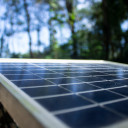
Featured news
11 Jan 2024
Watching others visibly dislike vegetables might make onlookers dislike them, too
New research shows that observing facial expressions of others eating raw broccoli can influence our own liking of the vegetable

Featured news
11 Jan 2024
New research shows that observing facial expressions of others eating raw broccoli can influence our own liking of the vegetable

Featured news
27 Jul 2023
By Deborah Pirchner, Frontiers science writer Image: Shutterstock.com Certain nutrients – including dietary fiber, vitamin C, and folic acid – are often consumed in too small amounts. Previous research has shown that during pregnancy these nutrients are essential for the development of offspring. In a new cohort study, researchers have confirmed the link between children’s brain development and maternal fiber consumption. They found that neurodevelopmental delays correlated with the amount of dietary fiber expectant mothers did – or did not – consume during pregnancy. Maternal dietary fiber insufficiency affected several domains related to children’s brain function, including communication, and personal-social skills. Undernutrition during pregnancy is one of the factors linked to an increased risk of diseases in children as they grow older. Yet, maternal malnutrition remains a problem for women worldwide. Animal studies have shown that a low-fiber diet during pregnancy impairs brain nerve function in offspring. Now, in the first human cohort study on the relation of maternal nutritional imbalance and infants’ brain development, researchers in Japan have investigated if the same effects can be found in humans. “Most pregnant women in Japan consume far less dietary fiber than what is the recommended intake,” said Dr Kunio Miyake, a […]

Featured news
05 Jul 2022
By Peter Rejcek, science writer Image: YAKOBCHUK VIACHESLAV/Shutterstock.com Most people consume too much salt in their diet, leading to high blood pressure and other health issues. Researchers have discovered a novel way to enhance the saltiness, and even potentially the savoriness, of low-sodium food using electrical stimulation of the tongue through a chopstick-shaped utensil. The concept has applications in other fields, such as stimulating taste as part of a virtual reality experience. An estimated 2.5m deaths each year could be prevented globally if individuals cut back their salt consumption to the recommended daily intake of less than five grams, according to the World Health Organization (WHO). Now, Japanese researchers may have found a healthier way for people to enjoy the full flavor of salty foods while still adhering to a low-sodium diet. Scientists at Meiji University and Kirin, a Japanese food and beverage company, have developed a chopstick-like device that uses a weak electrical charge to stimulate how the tongue experiences saltiness. The research is published in the journal Frontiers in Virtual Reality. Previous studies have described how introducing a weak electrical current to the tongue can affect the charged ions that make up sodium chloride to either inhibit or […]

Featured news
08 Mar 2022
This sustainable solar oven allows rural communities to cook without coal or firewood, published in Frontiers in Energy Research

Featured news
31 May 2021
By Tayyibah Aziz, science writer A productive lettuce yield following the researchers’ new biodisinfestation method. Image: Maite Gandariasbeitia et al A new study published by the open access publisher Frontiers has demonstrated that beer bagasse and rapeseed cake can be used as effective biodisinfestation treatments to reduce populations of soil parasites and increase crop yields. Researchers demonstrated that using these organic treatments in soils significantly reduced root-knot nematodes and boosted beneficial soil populations, as well as reducing waste from the agricultural industry by incorporating organic by-products as a treatment instead of harmful chemical fumigants. The use of many chemical fumigants in agriculture have been demonstrated to be harmful to human health and the environment and therefore banned from use. Now, in an effort to reduce waste from the agricultural industry and reduce the amounts of harmful chemicals used, researchers have investigated using organic byproducts from beer production and farming as a potential method to disinfest soils, preserve healthy soil microorganisms and increase crop yields. In this study published to Frontiers in Sustainable Food Systems, researchers from the Neiker Basque Institute for Agricultural Research and Development in Spain investigated using agricultural by-products rapeseed cake and beer bagasse (spent beer grains), along […]

Featured news
11 Mar 2021
By Prof Charles Spence, University of Oxford Image: SciePro/Shutterstock Blue has become an increasingly popular color in drinks and confectionary. Now, Prof Charles Spence of the University of Oxford asks what impact tainting meat blue would have in nudging consumers toward selecting a healthier and more sustainable diet? Have you ever heard about the infamous blue steak study? According to a story that has been circulating in the academic literature for 70 years, a group of people were once invited for a dinner of steak, fries, and peas. The lighting was so dim that it was impossible for the guests to discern the food’s true color. During the meal, the lighting was returned to normal suddenly revealing that the steak had been colored blue, the peas red, and the fries green. Many of the guests apparently immediately ran off to the bathroom to be sick. While this anecdote has appeared in numerous scientific papers over the last half century, typically to illustrate the sometimes aversive influence of (blue) food coloring, it turns out that it may be nothing more than that – a mere anecdote. According to a review of blue foods that I published recently in Frontiers in Psychology, […]

Featured news
28 Feb 2020
Scientists re-purpose wasted bread as a more sustainable starter for the food industry: Frontiers in Microbiology

Featured news
28 Aug 2019
The wild apples in the Tien Shan Mountains represent the main ancestral population for our modern apple. These trees produce large fruits, which are often red when ripe and have a varying array of flavors. These were the ancestors of the trees that people first started to cultivate and spread along the Silk Road. Image: Shutterstock. Apples originally evolved in the wild to entice ancient megafauna to disperse their seeds; more recently, humans began spreading the trees along the Silk Road with other familiar crops; dispersing the apple trees led to their domestication — by Max Planck Institute for the Science of Human History Recent archaeological finds of ancient preserved apple seeds across Europe and West Asia combined with historical, paleontological, and recently published genetic data are presenting a fascinating new narrative for one of our most familiar fruits. In this study, Robert Spengler of the Max Planck Institute for the Science of Human History traces the history of the apple from its wild origins, noting that it was originally spread by ancient megafauna and later as a process of trade along the Silk Road. These processes allowed for the development of the varieties that we know today. Origins of […]

Featured news
01 Apr 2019
Foodborne pathogens in the Bacillus cereus group cause diarrhea and vomiting. Credit: Penn State. — by Penn State University, USA Employing advanced genetic-tracing techniques and sharing the data produced in real time could limit the spread of bacteria — Bacillus cereus — which cause foodborne illness, according to researchers who implemented whole-genome sequencing of a pathogen-outbreak investigation. “Here, in our study, we use this approach for the first time on Bacillus cereus,” said Jasna Kovac, assistant professor of food science, Penn State. “It is our hope that whole-genome sequencing of Bacillus will be done more often as a result of our research, as it allows us to differentiate between the various species of Bacillus cereus group and project the food-safety risk associated with them.” Characterization of Emetic and Diarrheal Bacillus cereusStrains From a 2016 Foodborne Outbreak Using Whole-Genome Sequencing: Addressing the Microbiological, Epidemiological, and Bioinformatic Challenges► Read original article► Download original article (pdf) Done in response to an outbreak of foodborne illness in upstate New York in 2016, the project marked the first time researchers conducted whole-genome sequencing to investigate a Bacillus cereus outbreak to link isolates from human clinical cases to food. The outbreak, which lasted less than a month, stemmed from contaminated refried beans served by a small Mexican […]

Featured news
17 Jan 2019
Research suggests that celiac disease could be caused by a bacterial enzyme used to manufacture sausages, cheese, bread and other processed foods; Frontiers in Pediatrics

Featured news
07 Nov 2018
Promoting the enjoyable aspects of insect-based food is more effective than highlighting health or environmental benefits: Frontiers in Nutrition

Featured news
02 Nov 2018
New research maps energy, protein, fat, essential amino acids and micronutrients across the global food system to assess whether enough reaches everyone’s plate: Frontiers in Sustainable Food Systems

Featured news
16 Nov 2017
Blueberries, olive oil, turmeric and ginger are just some of the foods recommended in a Frontiers in Nutrition study.

Frontiers news
16 Oct 2017
Today, on World Food Day, we are thrilled to announce the launch of Frontiers in Sustainable Food Systems which publishes rigorously peer-reviewed research

Health
28 Sep 2017
Children from high-fat diet mothers have altered brain circuitry into adulthood. Research from Frontiers in Endocrinology explains how a preference for unhealthy foods can be passed from mother to child during pregnancy.